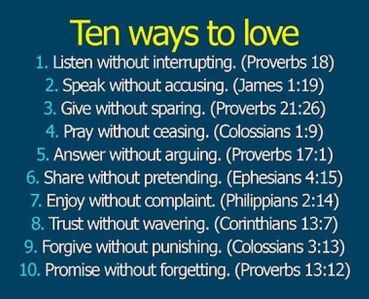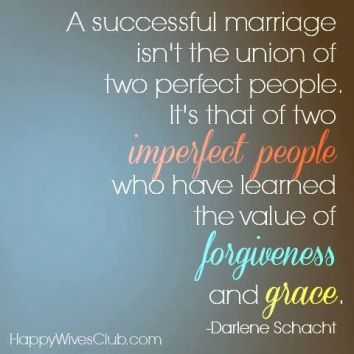Transitions in Marriage- Both sides now…
As we join to disparate lives together to form a new family, we each must change and adapt, compromise and communicate. It takes patience and kindness and willingness to open our hearts to someone new. New traditions melding the best parts of the two families, or something completely new and unique to the couple are just one way to “cleave” to each other and to none else.
One woman said,” When I met [his] parents . . . I didn’t agree with them on religion, politics, or even on how to cook a pot roast. I really wasn’t even sure if I liked them. But then I . . . remembered that they raised [my husband], and I loved him, so there must be something good about them. At that point I began to enjoy their differences and to love them too.” This quote is from a book called The In-law Survival Manual: A Guide to Cultivating Healthy In-law Relationships, 1997, by a friend of mine named Gloria C. Horsley.
I was very blessed to have in-laws that welcomed me into the family. They had already married off five other children and had learned how to make a spouse feel a part of the family. However, there are always adjustments to be made. . .
Traditions – who’s do you follow? His or hers?
My family celebrated birthdays for everyone with a personalized menu for the day. The birthday girl got to pick breakfast, lunch and dinner and dessert! (I only had sisters until after I was married.) We usually got one big present from my parents and little things from the siblings. (I once got a sanitary napkin from my little sister who only had a dime to spend and knew only that the machine in the ladies rest rooms had things that “big girls” needed. Thank goodness we didn’t do Instagram back then!)
My husband’s family got to pick what kind of cake, but the family celebration was usually on the closest Sunday. It was the only day the family could be pretty sure everyone could be there, due to busy schedules with work, sports, music, and other events.
Traditions continue today, as my siblings still send cards and gifts, and call on the phone for each other’s birthdays. My husband gets only a card or an email from one sister usually, but our kids call – and that is enough… And to be fair to his siblings – he doesn’t call or write to them either.
My kids and their spouses get a card and gift or gift-card every year. The grandchildren do too. However, we have been thinking that with the growing number of grandchildren and the frequency of special days we may have to downsize our gifts, especially when my husband retires and we go on a mission!
I hope, and believe that if the feeling is sincere, and the wishes are somewhat timely, that the size of the gift won’t matter.
What have you done to blend traditions?

